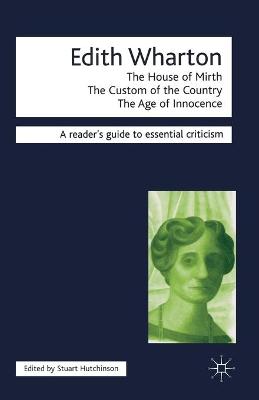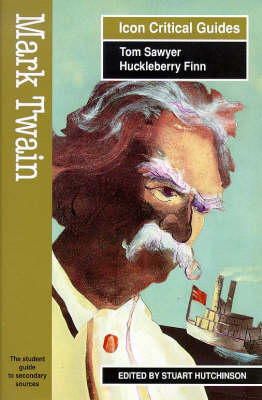Readers' Guides to Essential Criticism
2 total works
Edith Wharton - The House of Mirth/The Custom of the Country/The Age of Innocence
by Stuart Hutchinson
Published 1 October 1998
Edith Wharton's three New York novels are central to her reputation as a major woman novelist. In them, she recorded the mannered traditional world of her upbringing, and traced its inevitable decline as the American twentieth century began. The novels deal with a transitional period in which all values are questioned, and share as a continuing theme the question of how women and men should relate. Consumerism may be all they have to sustain them - a consoling world has been lost and little gained in return. If not nostalgia, then reflexive satire may be Wharton's only resource.
In this Readers' Guide, Stuart Hutchinson analyses the most significant writings on The House of Mirth (1905), The Custom of the Country (1913) and The Age of Innocence (1920). Beginning with Wharton's own comments on the novels, he moves on to the contemporary responses of Henry James and challenging reviews such as Katherine Mansfield's, before turning to stimulating critical writing from later perspectives. Geoffrey Walton, Blake Nevius and R. W. B. Lewis feature among others, followed by feminist insights from Cynthia Griffin Wolff, Elizabeth Ammons and Elaine Showalter. This Guide is an essential resource for understanding the changing responses to Wharton's work.
In this Readers' Guide, Stuart Hutchinson analyses the most significant writings on The House of Mirth (1905), The Custom of the Country (1913) and The Age of Innocence (1920). Beginning with Wharton's own comments on the novels, he moves on to the contemporary responses of Henry James and challenging reviews such as Katherine Mansfield's, before turning to stimulating critical writing from later perspectives. Geoffrey Walton, Blake Nevius and R. W. B. Lewis feature among others, followed by feminist insights from Cynthia Griffin Wolff, Elizabeth Ammons and Elaine Showalter. This Guide is an essential resource for understanding the changing responses to Wharton's work.
In this Readers' Guide, Stuart Hutchinson analyses the most significant writings on Twain's great works. Moving from a discussion of the novels' early reception, the Guide explores late nineteenth- and early twentieth-century criticism by T.S. Eliot, Van Wyck Brooks, Bernard De Voto, Booker T. Washington and Ralph Ellison. In its final section, the book provides students with important material on the contemporary debates on race and gender in the novels, so that new perspectives on Twain's place in American literature may be fully understood.

